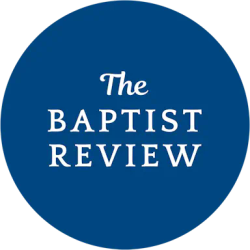Southern Baptists are currently wrestling with the question of what it means to cooperate when we disagree. This question has led to the formation of the Committee on Cooperation, which has been tasked to “study the issue of how this Convention should deem churches to be in friendly cooperation on questions of faith and practice, as laid out in Article 3.1 of the Constitution referencing our adopted statement of faith, and bring back recommendations to the 2024 SBC Annual Meeting in Indianapolis, Indiana for how we can move forward together in biblical fidelity, missional clarity, and cooperative unity.”
This question was partly settled in Texas 25 years ago when a group of churches decided that it could no longer cooperate in good faith and therefore left the Baptist General Convention of Texas to form the Southern Baptists of Texas Convention. Ministering as a Baptist in Texas has had its unique challenges due to the fact that we are one of only two states within the SBC that have two state conventions. My hope in this article is not to cast stones in any direction, but to voice four things that this young pastor wished would have been considered leading up to the decision that led to a split in the Baptist family in Texas. My hope is that these four considerations will be helpful as we consider this ongoing question at the national level of what it means to cooperate when we disagree.
Cooperation implies disagreements
Semantically speaking, to cooperate insinuates distinct entities coming together despite differences for the sake of a common goal. There is no need to use cooperative language when referring to how an entity relates to itself. As it has often been phrased by John Frame and others, “There is no unity without plurality, and no plurality without unity.” This may be obvious, but I believe it is worth reiterating for the sake of reminding that we, as Baptists, should expect disagreements. Distinction is a prerequisite to cooperation. These distinctions sometimes include variations in function that are informed by differing theological convictions. While teaching our Baptist Identity class at the institution where I teach, we constantly touch on what I have come to refer to as the “Unspoken Baptist Distinctive” of cooperation. Yes, Baptists are often known more for the infighting, but I believe that this is due to the surprising moments when churches and conventions split. It is when these unexpected events are contrasted with the acts of cooperation found throughout Baptist history that can cause the pattern of divisiveness to linger in our minds. If we recognize from the beginning that cooperation suggests disagreement, then I believe we are better suited to take advantage of the opportunity that presents itself in unity.
You cannot say that you’re building your case uniquely upon Scripture
The issue of functional ecclesiology that has led to disagreements on the national stage, results in many false claims that one’s particular side is more biblical than the other. We have all probably heard something along the lines of “I’m just reading my Bible” as one argues against another form of operative ecclesiology. The problem is, when it comes to functional ecclesiology, we are not just “reading our Bibles.” In Who Runs the Church? Four Views on Church Government, Peter Toon states in his chapter on his particular form of church polity that “The New Testament... suggests the seed if not the full flower, the principle if not the full concept.” In other words, there is no blueprint for a system of church polity, just the seedling. Functional ecclesiology is not solely built upon biblical theology, for it also incorporates other theological authorities to come to its conclusions. This has resulted in variations of ecclesiological models that all have biblical precedence to defend their position. Yet we still have Landmarkian tendencies in the Convention when we make assertions like, “You’re not a real church if you don’t look like this.” While I would argue that Baptist polity is the most effective and biblical form of ecclesiology, I also understand that to make that claim, I have to build my case on more than just Scripture.
Be wary of destroying the work of God
Writing to the church regarding the dispute over tertiary issues of food and holidays, Paul urges the Romans, “Let us therefore make every effort to do what leads to peace and to mutual edification. Do not destroy the work of God for the sake of food” (Romans 14:19-20). My fear is that we might be destroying the work of God for tertiary disputes. And let me be clear, when I say destroying the work of God, I do not mean to say that we are hindering His will to be done. The Lord has a rich history of working in spite of the efforts of His creation. Rather, what I mean is that we would be destroying the God-given cooperative spirit that has dominated Baptist culture for centuries. We impede on this cooperation when we decide that we can no longer collaborate for the sake of the mission. My hope is that this possibility causes us to pause and heed the Latin maxim: audi alteram partem (listen to the other side).
We might be wrong
We might be wrong in more ways than one. First off, we might be wrong in that we have come to the wrong conclusions. I humbly say this admitting that I, too, might be wrong. Secondly, we might be wrong in that, because of our conclusions (whether right or wrong), we have decided to divide the body of Christ. Either of these possibilities should cause us to pause and consider the implications of what we are calling for in light of some of these disagreements at the national level. I am not insinuating that we do not make claims and distinctions. However, I want to make sure that we are careful not to, as Richard Niebuhr states in his work, Christ and Culture, “confound his relative statement [of Christ and His Church] with the absolute Christ [and His Church].” May we humbly pursue peace in the midst of strife as we lean toward toleration in the midst of tension brought about by tertiary issues.
In Conclusion
As we draw nearer to gathering in Indianapolis, my prayer is that we would consider the implications of choosing to divide when we disagree rather than cooperate despite the disagreements. Recently, a fellow young pastor here in Texas agreed with my sentiment as he told me, “If only 25 years ago the stakeholders in Texas would have had the humility to consider the implications of a divided state. Which, in hindsight, has not led to more salvations, but a greater chasm between churches and the goal of reaching Texas with the gospel.” May the SBC glean from the mistakes of Texas and consider the opportunity that we have before us in unity.
Editor's Note: As a part of its commitment to fostering conversation within the Southern Baptist Convention, the Baptist Review may publish editorials that espouse viewpoints that are not necessarily shared by the TBR team or other contributors. We welcome submissions for responses and rebuttals to any editorials as we seek to host meaningful conversations about the present and future of our convention.


